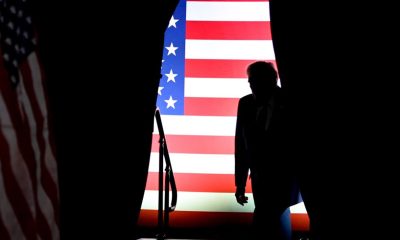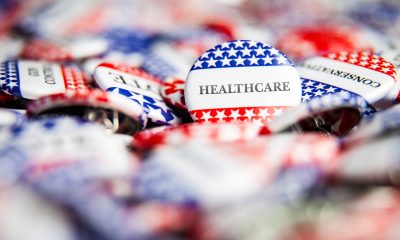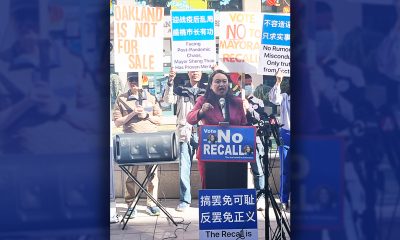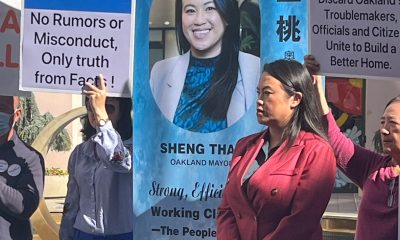Community
General King Rick Ensures 2019 the Year of the Panther
MILWAUKEE COURIER — The Original Black Panthers of Milwaukee have been pretty busy the first two months of 2019.
By Dylan Deprey
The Original Black Panthers of Milwaukee have been pretty busy the first two months of 2019. From the calls to their hotline and direct messages on social media, racism and oppression never sleeps.
Though their tactics may not fall in line with some, anytime they are notified of an incident, they investigate and intervene.
“People hate when we go to the source, but if they weren’t a detriment, we wouldn’t be there,” King Rick said. “We don’t mess with people that don’t deserve to be messed with.”
Though the Black Panthers are seen as a radical group, they are rather a militant unit that provides humanitarian effort and protection, along with amplifying the voice of the voiceless.
“The complete village is our family because it doesn’t matter what race you are. If you need help, we will help you,” King Rick said. “The only time we’re going to a business is if we’re supporting them or they messed up.”
Over the course of two months, the Original Black Panthers of Milwaukee have had to check several local and corporate businesses in and around Milwaukee for their ignorance. King Rick sat down with the Courier to give his take on each one.
Denco Manufacturing, New Berlin, WI
Marlon Anderson, a Milwaukee resident, worked at Denco Manufacturing for three years. He reached out to the Black Panthers about an incident with a coworker in December.
As Anderson was walking by, a white coworker asked him to stick his head into a noose fashioned from a nylon strap. He later came over and said he was asking to “test the weight limit of the straps.” Anderson said he was anxious and physically shaken up the next day coming into work. He added that he kept a screwdriver in his pocket for protection.
The employee said the incident was a joke and normal shop floor banter. The police were called, but surveillance video and testimony were not enough evidence for disorderly conduct.
“There is no misunderstanding or joke about lynching anybody, especially African Americans,” King Rick said. “We wanted the employee fired and the company to take responsibility.”
Denco Manufacturing had business with Harley Davidson and several other companies in neighboring suburbs. After hammering amounts of calls, emails and direct messages, they stopped answering their phones and still have an “Under Construction” notice on their website.
A representative with Harley Davidson later reached out to the Black Panthers to announce that they had ended business with Denco after taking concern from the community.
“Right is right and wrong is wrong, and if you’re not going to stand up and allow racism and oppression in your company, then you have no business in business,” he said.
The Panthers have made the trip to Denco twice, and will continue until the employee is fired.
FedEx, Glendale, WI
A 19-year-old female from Milwaukee was working at FedEx with a stand-in manager from a different location. The young adult asked her a question, which she responded by calling her a “f*****g monkey” in front of customers.
Individuals who had heard the outburst had spoken with her. The manager, Emily Trout, admitted what she had said and they contacted the Panthers.
After speaking with the young female’s father, who had corroborated the story, they went to FedEx and demanded Trout be fired. FedEx had the Panthers and the local alderman removed from the store.
The company was hit with a barrage of phone calls. FedEx eventually flew in their corporate lawyer to speak with the female about the alleged incident, and no resolution was made.
The Panthers had also visited the store she allegedly managed. Employees said they had never heard of her, and there is still no word if Trout is an employee.
“I don’t know if they moved her further out to the suburbs or got rid of her, but their policy is to not comment on employees,” said Rick. “But, if there wasn’t an issue, why did they fly their corporate lawyer out?”
He added that with the multiple instances of racism and oppression in Milwaukee and the suburbs, people out there didn’t seem to care.
“If you go in there all tame and docile, nothing is going to get done, but if you go in there with a bunch of strong Black men and women, someone will take accountability,” said Rick.
Stop & Shop, 29th/Fond du Lac, Milwaukee
When videos pop up online, the Panthers are instantly notified. The phone rings, the messages come in and they assemble.
On Feb. 10, a video of a large mouse squirming throughout bags of chips on a rack at a Northside gas station set social media ablaze.
“We are the ones keeping them rich, I don’t see white folks coming down to 29th and Fond du Lac for a juice and chips, so you better respect us and take care of a rodent infestation,” King Rick said.
There were many calls placed to the health department, and when the Panthers visited the business, the owner showed them that pest control had come through. They also noticed there had been mouse traps and other pest control units in place.
Though it will take time for a rodent-free establishment, he acknowledged them for taking the steps to better the situation, although it might not have been addressed if the video hadn’t surfaced in the first place.
In a perfect Milwaukee, King Rick said all businesses would put funds back into the communities that have spent millions at their establishments.
Mobil, 95th/Brown Deer, Milwaukee
On Feb. 9, a Milwaukee man who was normally charged $2 for cigars was now being charged $2.10. He didn’t have the extra dime. When he questioned the clerk, an argument ensued. The worker called him and his five-year-old nephew the “N-Word.” He then threatened them with a gun.
He called Black Panthers right after it happened. They went to the gas station and literally shut it down.
“We didn’t let anybody into the gas station, we turned people away because that’s what needs to be done,” King Rick said. “Forget talking, we need action.”
They stayed until the police came. The clerk was cited and ordered to the D.A.
“If you’re going to be in our community, making money from our community, you will respect our community, and need to put back in our communities,” he said.
The Year of the Panther
Along with dealing with racial incidents in and around Milwaukee, the Original Black Panthers give back through community events and donations. They also perform community patrols and provide security for those in unsafe conditions. They also have meetings every Wednesday for people to air their grievances.
“Milwaukee is home to all the unfavorable statistics for African Americans, the hyper segregation, the worst place to raise a Black child and the highest incarceration rates. Where are the churches, politicians?”
For 2019, the Original Black Panthers of Milwaukee are planning to add voter awareness to their list to-do list.
“You know what would happen if we got 1,000 people to show up to a Common Council meeting?” King Rick asked. “We need to take the responsibility for our community and for 2020 we want people to ‘Get Woke to Vote.’”
This article originally appeared in the Milwaukee Courier.
Activism
City of Oakland Celebrates Reopening of Main Library
“Libraries are such critical facilities for all Oaklanders, whether it’s children coming to story-time, adults reading the newspapers or borrowing the latest novels, and people engaging with a range of services and programs that the library hosts,” said Council President and District 2 Councilmember Nikki Fortunato Bas. “Such library services and programs are only possible when the facility’s electricity, heating, roof, and lighting are fixed and running efficiently. I’m proud to join this re-opening of our Main Public Library.”

The branch had been closed since May for critical infrastructure upgrades
Special to the Post
The City of Oakland leadership and community partners gathered to celebrate the reopening of the Main Library after completion of critical infrastructure upgrades to enhance the library’s facilities and provide a better experience for patrons.
Renovations include new roof installation, skylight repair, critical electrical system upgrades, new boiler control system installation, auditorium heating and cooling system installation, and improvements to lighting, flooring and ceilings throughout the building.
“This is truly something to celebrate, the reopening of our wonderful Main Library! I congratulate the staff and our partners for this important project to make the Main Library a more comfortable place for everyone for years to come, said Oakland Mayor Sheng Thao. “Thank you to Oakland voters and the California State Library for making these crucial improvements possible.”
“Libraries are such critical facilities for all Oaklanders, whether it’s children coming to story-time, adults reading the newspapers or borrowing the latest novels, and people engaging with a range of services and programs that the library hosts,” said Council President and District 2 Councilmember Nikki Fortunato Bas. “Such library services and programs are only possible when the facility’s electricity, heating, roof, and lighting are fixed and running efficiently. I’m proud to join this re-opening of our Main Public Library.”
“Public libraries are a wonderful resource for our residents, offering a safe space for learning and being,” said District 3 Councilmember Carroll Fife. “It is critical to improve and modernize our libraries so more members of our community can utilize and enjoy them. I’m excited that the necessary renovations to the Main Library have been completed successfully and thank everyone involved, particularly the City team, who helped secured the necessary grant funds for this work.”
“I am proud of the City staff and project partners who kept this important project on schedule and under budget,” said Assistant City Administrator G. Harold Duffey. “The library is an incredibly important resource for our community members, and this project is an investment into the library’s future.”
“December 2nd was a momentous occasion for Oakland Public Library as we proudly reopened the doors of the Main Library following extensive infrastructure repairs,” said Director of Library Services Jamie Turbak. “Closing the Main Library for six months was no easy decision, as it serves as the central hub for our library system and is truly the heart of Oakland. Yet, this renovation was essential, representing more than just physical upgrades—it reflects our ongoing commitment to creating a safe, welcoming space for everyone.”
The City Administrator Jestin Johnson also attended the press conference and signalled his support for the completion of the record-setting completion of the renovations. Gay Plair Cobb, a newly appointed Library Commissioner said the Library represents the soul and brains of our community.
The Oakland Public Library secured funding for these crititcal repairs through a variety of sources. The California State Library’s Building Forward Library Facilities Improvement Program awarded the Main Branch $4.2 million. To comply with the grant terms, the City of Oakland provided matching funds through Measures KK, as approved by the Oakland City Council in October 2023.
The Main Library will host an Open House to celebrate the reopening on February 22, 2025, 10 a.m. – 5:00 p.m.
About the Oakland Public Library
The Oakland Public Library is a part of the City of Oakland in California and has been in existence since 1878. Locations include 16 neighborhood branches, a Main Library, a Second Start Adult Literacy Program, the Oakland Tool Lending Library, and the African American Museum and Library at Oakland (AAMLO). The Oakland Public Library empowers all people to explore, connect, and grow. Oaklandlibrary.org
Activism
Biden’s Legacy Secured with Record-Setting Black Judicial Appointments
His record surpasses previous efforts by his predecessors. President Jimmy Carter appointed 37 Black judges, including seven Black women. In stark contrast, Donald Trump’s first term resulted in only two Black women appointed out of 234 lifetime judicial nominations. The White House said Biden’s efforts show a broader commitment to racial equity and justice.
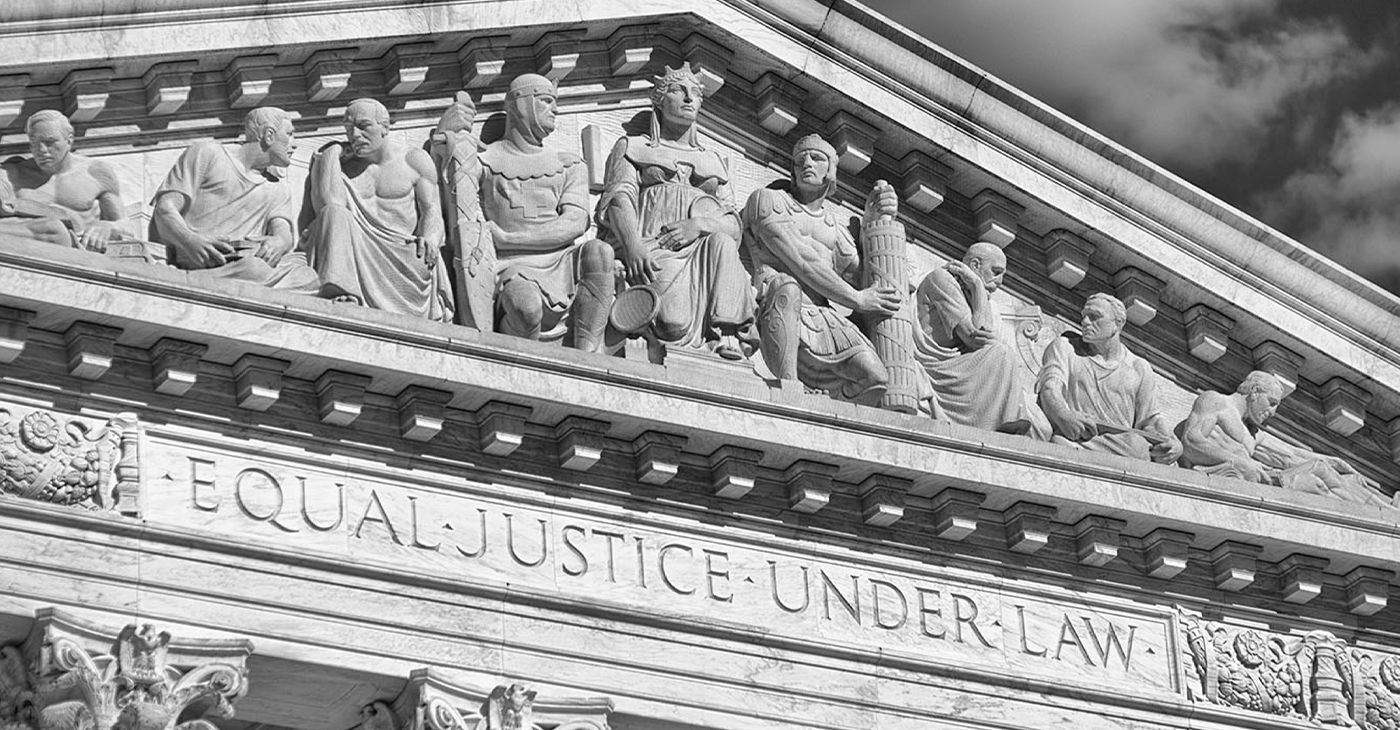
By Stacy M. Brown
WI Senior Writer
President Joe Biden’s commitment to diversifying the federal judiciary has culminated in a historic achievement: appointing 40 Black women to lifetime judgeships, the most of any president in U.S. history.
Biden has appointed 62 Black judges, cementing his presidency as one focused on promoting equity and representation on the federal bench.
His record surpasses previous efforts by his predecessors. President Jimmy Carter appointed 37 Black judges, including seven Black women. In stark contrast, Donald Trump’s first term resulted in only two Black women appointed out of 234 lifetime judicial nominations.
The White House said Biden’s efforts show a broader commitment to racial equity and justice.
Meanwhile, Trump has vowed to dismantle key civil rights protections, including the Justice Department’s Civil Rights Division.
“Having the Black woman’s experience on the federal bench is extremely important because there is a different kind of voice that can come from the Black female from the bench,” Delores Jones-Brown, professor emeritus at John Jay College of Criminal Justice, told reporters.
Lena Zwarensteyn of the Leadership Conference on Civil and Human Rights told reporters that these district court judges are often the first and sometimes the final arbiters in cases affecting healthcare access, education equity, fair hiring practices, and voting rights.
“Those decisions are often the very final decisions because very few cases actually get heard by the U.S. Supreme Court,” Zwarensteyn explained.
Biden’s nomination of Justice Ketanji Brown Jackson to the Supreme Court further reflects his commitment to judicial diversity. Jackson became the first Black woman to serve on the nation’s highest court.
Patrick McNeil, spokesperson for the Leadership Conference, pointed out that over half of Biden’s Black female judicial appointees have backgrounds as civil rights attorneys and public defenders, experience advocates consider essential for a balanced judiciary.
Meanwhile, Congress remains divided over the expansion of federal judgeships. Legislation to add 66 new judgeships—approved unanimously by the Senate in August—stalled in the GOP-controlled House until after the election. House Republicans proposed distributing the new judgeships over the next decade, giving three administrations a say in appointments. President Biden, however, signaled he would veto the bill if it reached his desk.
Rep. Jerry Nadler, D-N.Y., argued the delay was a strategic move to benefit Trump’s potential return to office. “Donald Trump has made clear that he intends to expand the power of the presidency and giving him 25 new judges to appoint gives him one more tool at his disposal,” Nadler said.
Activism
A Student-Run Group Provides Critical Support Services to Underserved Residents
Those visiting The Suitcase Clinic can get legal advice, sign up for food assistance, receive housing resources, get medical help, or enjoy a hot, fresh meal. They can also get haircuts and foot washes from the student volunteers. Nilo Golchini, executive director of the clinic, said one of the goals for most of the students working there is helping bridge the gap of trust that exists between many unhoused people and the healthcare and social welfare systems.
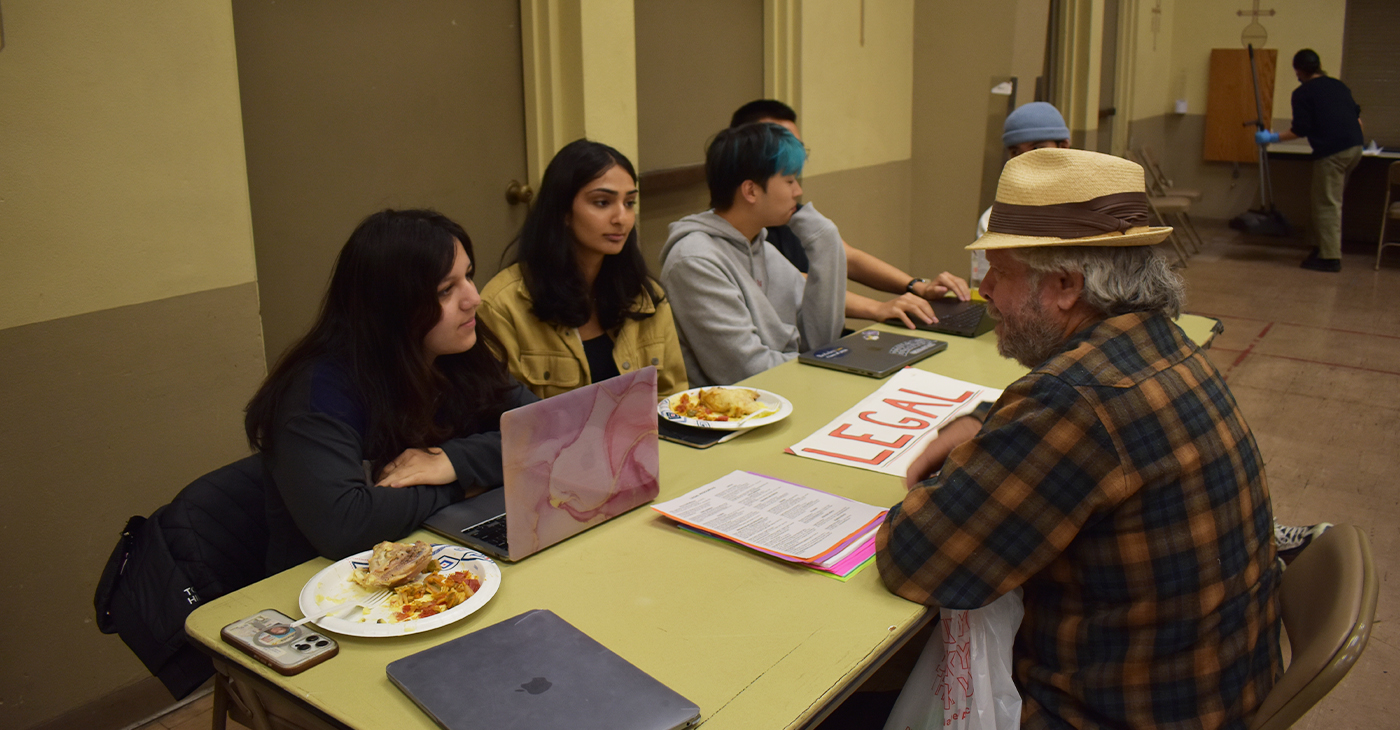
Part One
By Magaly Muñoz
Every Tuesday evening, the dining hall of First Presbyterian Church fills up with dozens of people eating, laughing and moving from table to table, receiving much-needed services from UC Berkeley students – just a few blocks away from the university’s campus.
Individuals seeking support services can be found in this multi-stationed room on the south end of the church talking to law students, student case managers, or receiving medical attention in a corner by healthcare professionals.
This weekly event is hosted by Cal students through a volunteer-run program called The Suitcase Clinic.
The clinic, founded in 1989, was intended to offer free resources to underserved communities in Berkeley and surrounding cities. The majority of the clinic’s clientele are unhoused or low-income people looking for extra support.
Those visiting the clinic can get legal advice, sign up for food assistance, receive housing resources, get medical help, or enjoy a hot, fresh meal. They can also get haircuts and foot washes from the student volunteers.
Nilo Golchini, executive director of the clinic, said one of the goals for most of the students working there is helping bridge the gap of trust that exists between many unhoused people and the healthcare and social welfare systems.
During their tenure in the program, many of the students say they become strong advocates for homelessness rights.

Visitors of the Suitcase Clinic can receive haircuts and foot washing by student volunteers every Tuesday evening. Photo by Magaly Muñoz.
“We’re also standing in solidarity with them. So, it’s not saying, ‘I’m going to help you, but I’m also going to stand with you,’” Golchini said.
Student volunteers get extensive training prior to working directly with clients. Those interested have to take a semester-long class to become versed in areas such as outreach, intersectionality, how to interact with unhoused people, how to sign people up for social services. and more.
Volunteers then get to pick from three different clinics: General, Women’s, or Youth and LGBTQ+.
The General Clinic is the most popular among visiting residents, while Women’s and Youth/LQBTQ+ have more specialized services for attendees.
The Women’s Clinic has many of the similar services to General, but also includes nail painting, childcare, and massages.
The Youth and LGBTQ+ Clinic offers a safe space for young people navigating living on the streets, with services that include housing referrals, wellness and recreation classes and employment resources.
Golchini explained that it’s important for them to keep these clinics separate because the different demographics experience poverty and homelessness differently than those who visit the General Clinic.

Suitcase Clinic student workers posing for a photo with a frequent clinic attendee. The Clinic is open to Berkeley unhoused and low-income residents who need medical or legal service, or a hot meal. Photo by Magaly Muñoz.
“We’re able to provide spaces where people can come in and feel safe and not feel like they’re constantly worried that something’s going to happen to them,” she said.
An outreach team also visits encampments every other Saturday in the Berkeley area to provide hygiene kits and encourage people to visit the in-person clinic, if possible.
However, Golchini said engagement has been low for some time now due to a recent decision by the U.S. Supreme Court that allows cities to ban and cite people for sleeping on the streets.
She said a lot of their clientele got displaced to other cities over time, making it difficult to stay in contact with the services the Clinic was providing for them.
But that hasn’t slowed down the students at the Clinic, if anything, it has pushed them to do more for the community they serve.
-

 Activism4 weeks ago
Activism4 weeks agoOakland Post: Week of November 20 – 26, 2024
-

 California Black Media3 weeks ago
California Black Media3 weeks agoCalifornia to Offer $43.7 Million in Federal Grants to Combat Hate Crimes
-

 Activism4 weeks ago
Activism4 weeks agoAn Inside Look into How San Francisco Analyzes Homeless Encampments
-

 Black History3 weeks ago
Black History3 weeks agoEmeline King: A Trailblazer in the Automotive Industry
-

 California Black Media3 weeks ago
California Black Media3 weeks agoCalifornia Department of Aging Offers Free Resources for Family Caregivers in November
-

 California Black Media3 weeks ago
California Black Media3 weeks agoGov. Newsom Goes to Washington to Advocate for California Priorities
-

 Activism3 weeks ago
Activism3 weeks agoOCCUR Hosts “Faith Forward” Conference in Oakland
-

 #NNPA BlackPress4 weeks ago
#NNPA BlackPress4 weeks agoPRESS ROOM: Clyburn, Pressley, Scanlon, Colleagues Urge Biden to Use Clemency Power to Address Mass Incarceration Before Leaving Office


